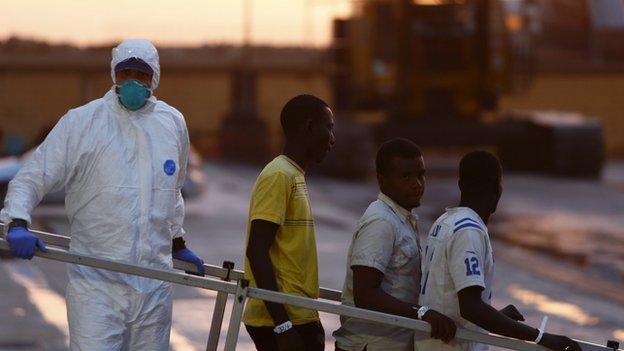EU migrants: Reduced Mediterranean mission set to go
- Published
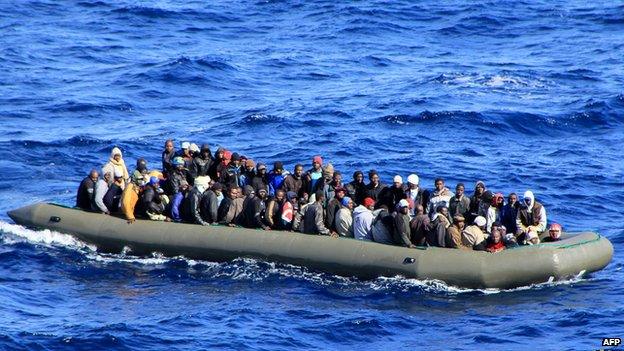
Desperate migrants are often found crowded onto unseaworthy boats in the Mediterranean
The EU is set to begin maritime patrols in the Mediterranean on Saturday in a new operation to help Italy stem the flow of migrants from North Africa.
Italy is ending its bigger "Mare Nostrum" operation off Libya. It began in 2013 after more than 300 migrants drowned off an Italian island.
Operation Triton, based in Italian waters, will have only one-third the budget of Mare Nostrum.
This year has seen a surge of migrants risking their lives to reach Italy.
Triton's more limited resources may make it harder for the EU to rescue migrants in distress in international waters, some experts warn.
The Secretary General of the European Council on Refugees, Michael Diedring, said it was "deplorable" for the EU to prioritise coastal border controls over search and rescue missions.
Triton, run by the EU border agency Frontex, will have six ships, four planes and one helicopter at its disposal, and a staff of 65. The European Commission says , external21 EU member states have pledged to participate.
'Italy did its duty'
"Mare Nostrum was conceived as a limited, emergency operation after the Lampedusa [island] tragedy, and it went on longer than expected," Italy's Interior Minister Angelino Alfano said on Friday. "Today we can say Italy did its duty."
At least 3,000 migrants have drowned trying to reach Europe this year. Italy has rescued about 150,000 in its Mare Nostrum operation.
Triton's monthly budget will be 2.9m euros (£2.3m; $3.7m), whereas Italy spent 9.5m a month on Mare Nostrum, Mr Alfano said.
The Commission says any increase in Triton's budget next year will require the approval of the European Parliament and EU governments.
Triton will operate from the isle of Lampedusa and Porto Empedocle, on the Sicilian coast.
With fewer ships there is a risk that Triton will take longer to reach migrants far out to sea, the BBC's James Reynolds reports from Rome.
The Commission says Italy must continue fulfilling its international obligations to rescue people in danger at sea, meaning "continued substantial efforts using national means".
The UK has opted out of migrant rescues in the Mediterranean, saying such operations could encourage more people to risk dangerous voyages to Europe.
- Published21 October 2014
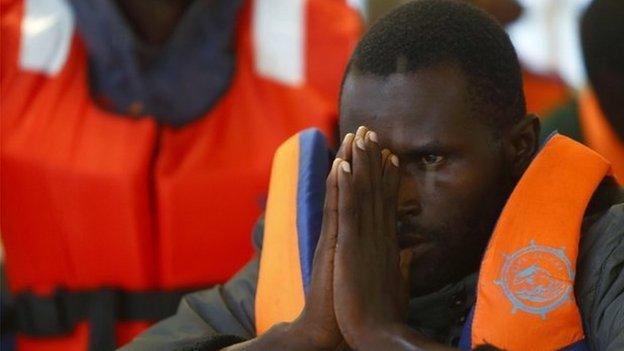
- Published13 October 2014
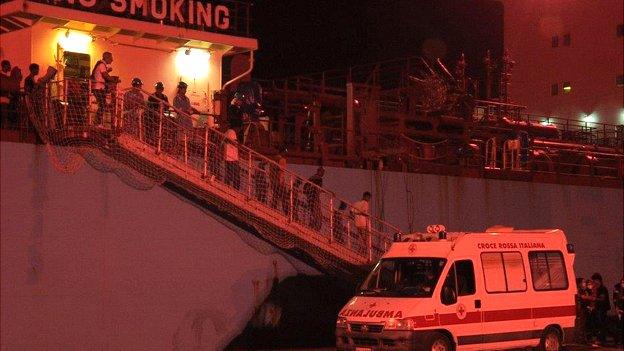
- Published3 March 2016
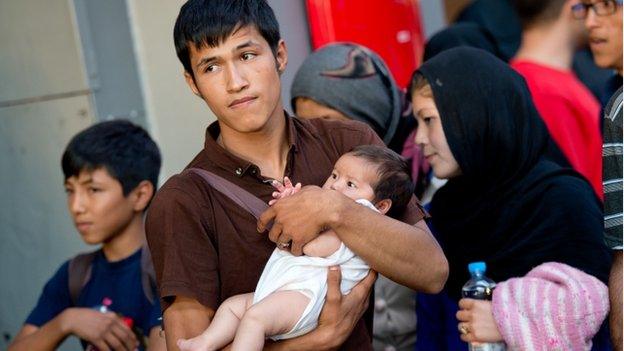
- Published14 October 2014
